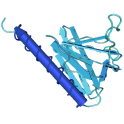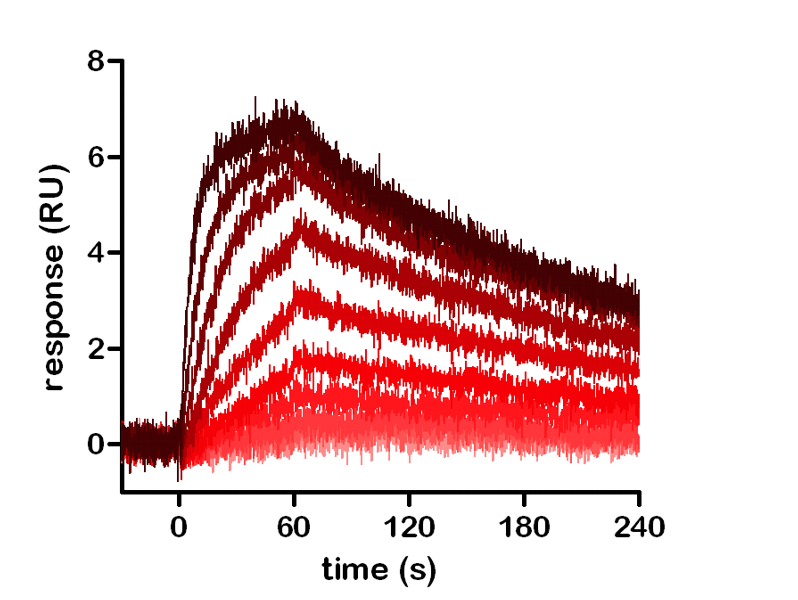
- Remove this product from my favorite's list.
- Add this product to my list of favorites.
Products
Newsletter
 |  |  |  |  |  |

Background: Protein kinase B or Akt (PKB/Akt) is a serine/threonine kinase, which in mammals comprises three highly homologous members known as PKB alpha (Akt1), PKB beta (Akt2) and PKB gamma (Akt3). PKB/Akt is a growth-factor-regulated protein kinase which contains a pleckstrin homology (PH) domain. Binding of phosphoinositide 3-OH kinase products to the pleckstrin homology domain results in translocation of PKB/Akt to the plasma membrane where it is activated by phosphorylation by upstream kinases including the phosphoinoside-dependent kinase 1 (PDK1). Key roles for this enzyme can be found in cellular processes such as glucose metabolism, cell proliferation, apoptosis, transcription and cell migration.
Protein: Human AKT1, C-terminal fragment, amino acids V106-A480, N-terminal GST-HIS-6, C-terminal HIS-6 fusion protein with a Thrombin cleavage site, expressed in Sf9 insect cells
Theoretical MW: 77.8 kDa (fusion protein)
Expression system: Sf9 cells
Purification: One-step affinity purification using glutathione agarose
Storage buffer: 50 mM Tris-HCl, pH 8.0, 100 mM NaCl, 5 mM DTT, 15 mM reduced glutathione, 20% glycerol
Protein concentration: 0.43 mg/ml (Bradford method using BSA as standard protein)
Method for determination of Km value & specific activity: Filter binding assay MSFC membrane
Specific activity: 328,000 pmol/mg x min
Entrez Gene ID: 207
UniProtKB: P31749
Ordering information: shipped on dry ice
BIAFFIN – SERVICES:
Use the PKB / Akt - SPR Binding Assay of BIAFFIN for comprehensive kinetic characterization of your small molecule kinase inhibitors.

Figure: Real-time kinetic analysis of kinase inhibitor MK-2206 binding to PKBα / Akt1 using surface plasmon resonance.
Please contact our application specialists to obtain more information and an individual quote tailored to your specific needs.
Downward J (1998) "Mechanisms and consequences of activation of protein kinase B/Akt" Curr Opin Cell Biol. 10(2):262-7
Brazil DP, Hemmings BA (2001) "Ten years of protein kinase B signalling: a hard Akt to follow" Trends Biochem Sci. 26(11):657-64
Nicholson KM, Anderson NG (2002) "The protein kinase B/Akt signalling pathway in human malignancy" Cell Signal. 14(5):381-95
Follow us